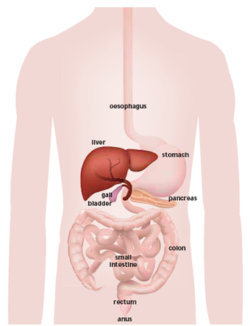
Irritable Bowel Syndrome (IBS) is one of the most common gastrointestinal problems and affects about 20% of adults. IBS usually begins during early adulthood, rarely beginning after the age of 50. For those who have IBS, it simply means that the intestinal system does not work like normal, causing symptoms like abdominal pain, heartburn, diarrhea, and constipation.
The symptoms can range from mild to severe and IBS may be worse for people who have stress or mood disorders, like anxiety and depression.
Doctors are still studying what causes IBS but one study found that people who have IBS have colon tissue that is more sensitive than normal, which may contribute to the problem. There are many things you can do to help minimize your IBS flare-ups:
- If you know of specific foods that cause symptoms then try to avoid them.
- Avoid chewing gum and drinking carbonated beverages because they can cause gas.
- Avoid caffeine and nicotine, and some people find that cutting out alcoholic beverages helps too.
- Provide regular mealtimes that allow you to eat slowly. Eating in the car or when you are hurried causes you to gulp food and swallow air, which can trigger an IBS flare-up.
- Exercising, relaxing and getting the right amount of sleep is not only good for your gastrointestinal problems, but they have many other health benefits for your body.
Making these lifestyle and diet changes can help reduce flare-ups. Pairing these changes with developing good sleeping habits can help to reduce anxiety and in turn relieve bowel symptoms. Your gastroenterologist may also be able to talk to you about various medications that might make living with IBS more tolerable, and they may suggest counseling to help with anxiety and depression.
Many gastrointestinal specialists find IBS stubborn to diagnose and treat because the symptoms can be similar to other illnesses. The disease is considered chronic, but some people never have a reoccurrence after being treated. Treatments can range from diet changes to medications. Keeping a positive attitude and staying in touch with your gastroenterologist and others who have similar diseases help make living with a chronic IBS much more bearable.
Most people assume that IBS is just something they will have to deal with all their life and up to 75% do not seek medical advice! You do not have to go another day with the pain and you should always make sure your symptoms are not something more serious.
